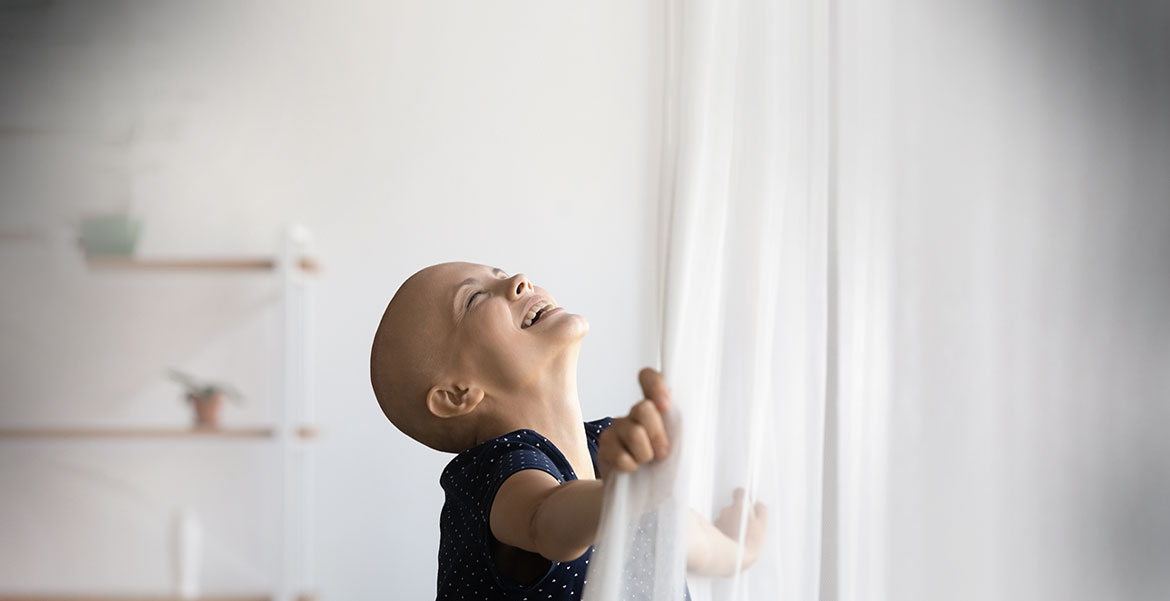Life After Cancer
You begin a new chapter in your life when cancer treatment ends. One that can bring hope and happiness, but also worries and fear. Each person has his or her own way of coping and learning to manage these emotions. It will take time and practice.
Common concerns and feelings after cancer treatment
● Physical changes to your body that occurred as a result of cancer treatment. Your body may look different with the loss or gaining of weight or from surgery.
● You may not have your previous ability to remember things which can be frightening. This can be a lingering side effect of chemo called “chemobrain.”
● It can be difficult to jump back into your pre-cancer social life, especially if you were active in large groups where people may want to talk about how you’re feeling when you return.
● You may feel stressed about your financial situation which can include going back to work.
● It’s very common to be worried about cancer coming back. Will it? Where might it reappear, etc.?
There can also be a feeling of being deserted after treatment. While you were being treated for cancer, you may have been surrounded by carers – doctors, nurses, friends and family who drove you places, cooked for you, ran errands for you, and helped you maintain your home. Returning to doing things on your own can leave a cancer survivor feeling overwhelmed and even depressed that the support system may have taken a step back. While you’re no doubt relieved to have survived cancer, you may not feel complete happiness for a while. That’s OK. It’s entirely normal and very common for survivors to experience negative feelings and emotions after cancer.
What can you do to improve your mental health after cancer treatment?
● Discuss the feelings and concerns with your closest family members and/or friends. Together you can decide what can be done to help you feel better.
● Choose 1 or 2 things at a time that you can start to work on to relieve some of the stress. These should be issues you have control over such as your work situation, or getting back to a healthy weight.
● At your next appointment, be sure to tell your cancer care team or your general practitioner how you’ve been feeling. They may be able to offer medications that can help you if necessary.
● Determine whether you might benefit from talking to other survivors. Support groups are available as well as other support services for patients and survivors such as art therapy, journaling, meditation or yoga classes, etc.
How do you adjust to a new normal?
Once diagnosed, people tend to feel that their entire life is disrupted and while there are
multiple changes that do occur, it’s’ important to understand that these are just
experiences and a part of the evolution process. Something that is integral to human
nature and happens to all of us. It’s just that, this being an unpleasant experience, it
creates more disharmony with the change. The “new normal” that everyone talks about
is evolution and when you truly understand that change is the only constant that we as
human beings have lived with for our entire lives, you will realize that this “new normal”
is actually very natural and is a part of an evolutionary process.
The path to restore health and healing all begins with the mind and how we use that
towards building the required immunity, strength and willpower to get through this
phase. It’s very important to put in the extra effort towards making sure you are looked
after nutritiously, physically and mentally.
Patience is important and knowing that you have the right external support to take you
through the process. Having said that, you have the power to heal yourself. You need to
recognize that this power lies within you and is all your mindset. Yes, there are medical
parameters and complications that might be out of your control, but the inherent power
and the mindset to heal must lie within you. It begins and ends with you.









